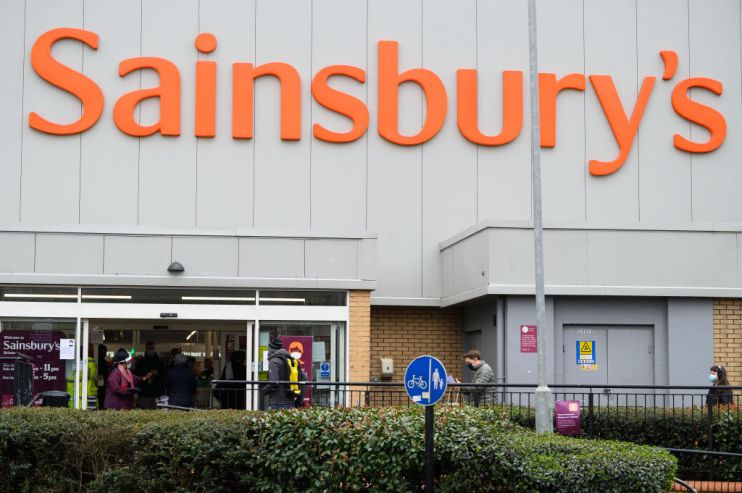Sainsbury’s to cut 1,500 jobs and invest in automation to reduce costs by £1bn

Supermarket giant Sainsbury’s has said it plans to cut some 1,500 jobs as part of efforts to reduce costs by around £1bn per year.
The layoffs, subject to consultation, are set to involve mainly the group’s call centres, warehouses, in-store bakeries and a “very small proportion” of staff in local fulfilment centres as Sainsbury’s invests more in technology and automation.
Earlier this month, the supermarket told City A.M it could not rule out jobs cuts as part of its new strategy.
“As we move into the next phase of our strategy, we are making some difficult, but necessary decisions,” chief executive Simon Roberts said, speaking today.
“I know today’s news is unsettling for affected colleagues and we will do everything we can to support them.”
Sainsbury’s said it would reinvest the savings into the business to provide “great value, quality and service” to customers.
At its contact centre in Widnes, Cheshire, a “vast majority” of staff will be transferred to a different company that Sainsbury’s already works with, which will also start running all of the supermarket’s Careline services.
Simon Roberts, chief executive of Sainsbury’s said: “Our Next Level Sainsbury’s strategy is about giving customers more of what they come to Sainsbury’s for – outstanding value, unbeatable quality food and great service. One of the ways we’re going to deliver on this promise is through our Save and Invest to Win programme.
“As we move into the next phase of our strategy, we are making some difficult, but necessary decisions. The proposals we’ve been talking to teams about today are important to ensure we’re better set up to focus on the things that create a real impact for our customers, delivering good food for all of us and building a platform for growth.
He added: “I know today’s news is unsettling for affected colleagues and we will do everything we can to support them.”
Its £1bn development plan will also see the grocer slash the amount of general merchandise and clothing it sells in its shops.
Sainsbury’s said it would expect profit growth from the start of the plan, and would increase capital expenditure by between £800m-£850m each year for the next three years.
Other areas of investment include £70m into its electric vehicle charging network, and open around 75 new Sainsbury’s local convenience stores across the UK.
It comes amid a period of increased competition in the grocery market.
Big Four players are battling it out to keep their prices as low as possible to contend with German discounters Aldi and Lidl.